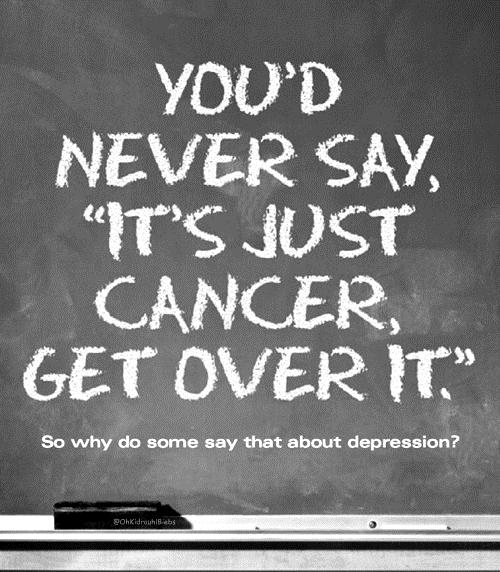The website of the American Psychiatric Association has a quote, highlighted in boldface and large font, in the ‘Patients & Families’ section: “Mental illness is nothing to be ashamed of. It is a medical problem, just like heart disease or diabetes.”
To most visitors, this is likely a helpful reminder. To me, it is a sad confirmation that stigma remains a significant barrier that keeps suffering people from receiving the help they need.
Far too many people still view depression and its cousins — anxiety, Bipolar disorder and a host of other psychiatric conditions — as character flaws or signs of weakness rather than medical conditions. The thought of ridiculing a cancer victim for receiving chemotherapy or making fun of a person for having a stroke is rightfully ridiculous. Why do we treat depression differently?
If anything, we should be more sensitive about minimizing mental illness than we are with cancer or a stroke. Calling someone with a mental illness “crazy” or implying that their condition is their own fault, that something is “wrong with them,” can lead to social isolation and foregone treatment. It can aggravate their disease.
Furthermore, just like heart disease or diabetes, mental illness doesn’t discriminate according to race, gender or socioeconomic status. In too many conversations about people suffering from depression, I have heard others list off all of the things the depressed person has to be grateful for. “How can they be depressed when they’re rich/beautiful/successful/smart/popular?” they ask incredulously, as if the question itself should be a cure.
Unfortunately, depression doesn’t yield to logic. The link between temporal success and happiness is tenuous, anyway. Have you ever heard the phrase, “Money can’t buy happiness?” Well, the mentally ill are no exception. So stop trying to convince depressed people to simply snap out of it.
Treating people with mental illness with compassion, like we would a person with any other disheartening medical prognoses, will eliminate an important obstacle to care. Reminding ourselves that mental illness is just that, a legitimate and tragic illness, will do wonders to encourage victims to seek effective treatment options and to decide against isolation, self-harm or suicide.



SteveBic • Dec 2, 2017 at 12:07 pm
After series of honour xiaoyu.blackmask.amsterdam interviews and a expiration of plumb into the products retail, we be subjected to karma upon up with the most superbly headman massagers in the industry.
Harold A. Maio • Apr 16, 2017 at 10:51 am
—To me, it is a sad confirmation that stigma remains a significant barrier
Calling it “stigma” is a bad habit. Ignorance, prejudice lack of information are all more apt.
Diane Mintz • Apr 16, 2017 at 10:25 am
Agree! The difficult part of our language is that we use the same word for extremely different meanings. Like Love: I love my mom. I love peanut butter. Same with depression. I am depressed over a bad grade. I am depressed and suicidal. But we (because I have been there) are clearly clinically depressed – we should be treated with the same compassion as cancer. It is just as deadly.